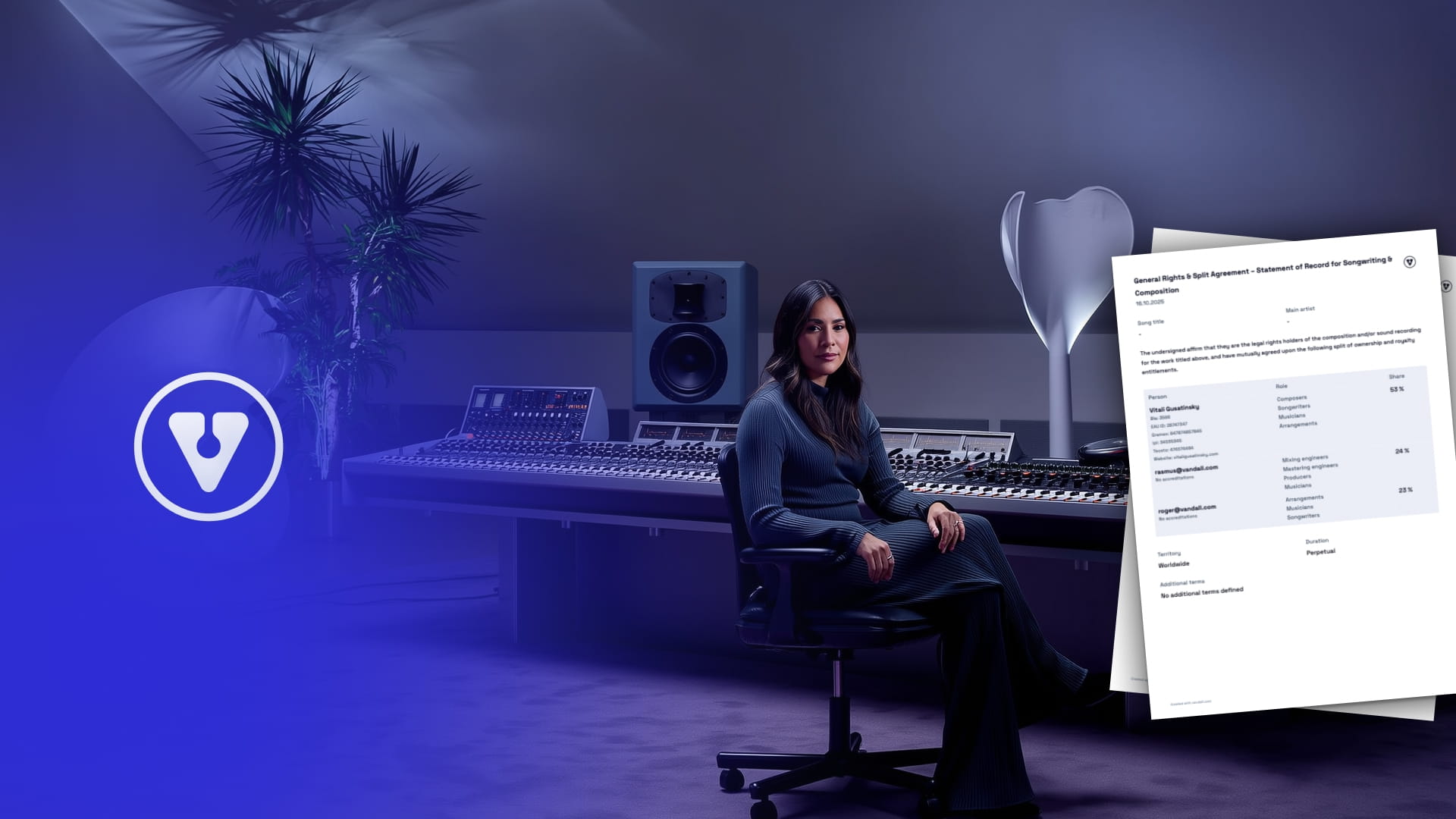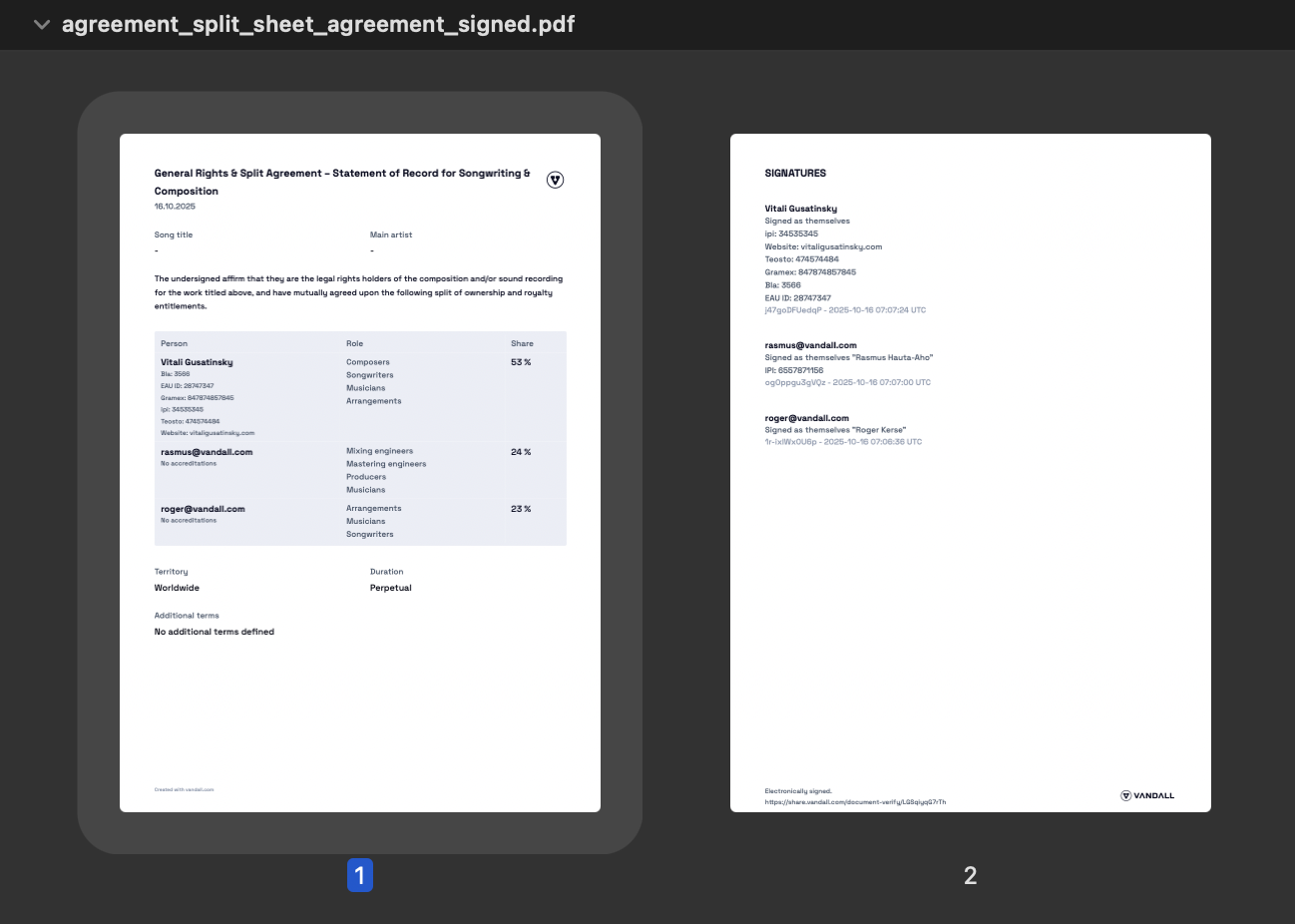19.10.2025

These lost royalties don't disappear because your song wasn't good enough.They vanish because the people behind the music didn't properly register their rights or define who owns what.
If you're a music creator—a producer, songwriter, artist, manager, or label—this article could be the difference between getting paid or not.
A split sheet is a simple but essential document that defines the ownership of a song. It answers one crucial question:
Who gets paid, and how much?
When multiple people collaborate on a track, the royalties generated (from streaming, radio, sync, etc.) need to be split based on contribution. Without a written agreement, those splits become vague and unverifiable.

If you're not defining your split percentages early, you're relying on trust and memory—both of which fade with time.
According to CISAC, billions of dollars in global music royalties sit in limbo every year, unallocated to the correct rights holders because of missing metadata or unclear ownership.
This is often called the black box: money collected but never paid out because no one can say for certain who owns what.
"Roughly 20-30% of mechanical royalties go unclaimed due to inaccurate or incomplete rights information." – Billboard
When artists don’t properly register or define their splits, their money gets stuck—or worse, gets distributed to the wrong people or divided up arbitrarily.
PROs (Performing Rights Organizations) like ASCAP, BMI, and SESAC in the US, or CMOs (Collective Management Organizations) like GEMA (Germany), PRS (UK), or Teosto (Finland), are responsible for collecting and distributing royalties on behalf of songwriters and publishers.
To get paid:
Failure to do any of the above? You guessed it: more black box money.

At Vandall, we believe getting paid should be as smooth as creating.
That’s why we built the fastest and most secure split sheet engine in music:
All agreements are securely stored and verifiable by link.
Perfect for registering with any PRO, CMO, label, or publisher.
If your name is on a track, you deserve to be paid.
But rights don't enforce themselves.
You need:
With Vandall, you can go from jam session to signed agreement in under a minute.
Ready to secure your royalties?